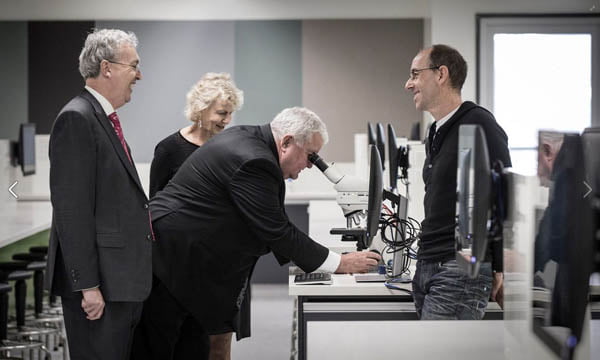The Chief Scientist Ian Chubb wants Australia to play a leadership role in creating an Asian-Area Research Zone as a part of his strategy for beefing up the nation’s international engagements in science and research.
Long-term collaborations with international partners, including the strengthening of existing research relationships with Europe and the US, should be a central pillar of Australian science and research policy, he said.
But Professor Chubb said special opportunities exist for Australia to be a leader in building a research frameworks among Asian nations. To develop those opportunities, he wants a long-term fund established to underwrite the building of government-to-government linkages as a basis for international STEM collaboration.

The Office of the Chief Scientist this week released its national science strategy, called Science, Technology, Engineering and Math: Australia’s Future. The call for more aggressive leadership from government in building STEM-based research relationships was one of many recommendations across four key areas.
“Effective and informed engagement [in STEM-based relationships] requires the leadership of the Australian Government. As the custodian of our reputation and the architect of our global agenda, it can position Australians to excel,” the report said
“Äustralia has much to gain from partnership with the powerhouse STEM nations of the OECD. We also have a moment of opportunity in Asia,” it said.
“A forward-looking plan for an Asian-Area Research Zone would keep Australia at the centre of its rapid economic progress. Like its counterpart in Europe, such an area would encourage researchers, knowledge and technology to circulate freely within and between member states,” it said.
International engagement was one of the four areas where the Chief Scientist has made recommendations. The others were in Australian Competitiveness, Education and Training, and Research.
Prof Chubb is pressing for much earlier engagement with students to drive greater interest in STEM subjects. He wants significant resources to improve teacher and teaching standards in technology-related subjects across primary and secondary schools.
Across a range of issues, he also argues a need for long-term funding.
He argues that Australia’s science and technology capability had been put at risk by the fickle nature of funding. Programs start and stop as governments prioritise or de-prioritise science and technology within budgets. This will have long-term consequences for the economy, the report says.
Clearly, Professor Chubb wants to hold the Prime Minister to his word on STEM priorities.
The Prime Minister said at a doorstop in New York on his visit to the US in June that science and technology were central to the nation’s economic well-being.
Specifically, Tony Abbott foreshadowed during a visit to a technical high school in Brooklyn that his government understood the value of STEM skills to Australian competitiveness.
“There will be significant emphasis in boosting our focus on science, technology, engineering and maths, because science is at the heart of a country’s competitiveness and it is important that we do not neglect science as we look at the general educational and training schemes,” Mr Abbott said.
Prof Chubb has been on a campaign to improve the profile of STEM issues in the public discourse. The world is becoming a more competitive place, and Australia is going backwards.
He has spent this week walking the recommendations of his report around the Parliament. As Prof Chubb told ABC radio after its launch: “I’m going to make sure that I talk to people from as many places as I can get to, to persuade them that Australia’s future depends on a well integrated, a well-resourced, but a coherent approach to support for science.”
“If we continue to do things in the way that we have, the gap between us and the rest of the world will grow so big we’ll never bridge it.”
Do you know more? Contact James Riley via Email.

